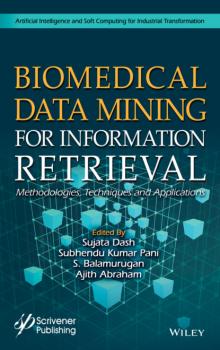Базы данных
Различные книги в жанре Базы данныхРоман с Data Science. Как монетизировать большие данные
Как выжать все из своих данных? Как принимать решения на основе данных? Как организовать анализ данных (data science) внутри компании? Кого нанять аналитиком? Как довести проекты машинного обучения (machine learning) и искусственного интеллекта до топового уровня? На эти и многие другие вопросы Роман Зыков знает ответ, потому что занимается анализом данных почти двадцать лет. В послужном списке Романа – создание с нуля собственной компании с офисами в Европе и Южной Америке, ставшей лидером по применению искусственного интеллекта (AI) на российском рынке. Кроме того, автор книги создал с нуля аналитику в Ozon.ru. Эта книга предназначена для думающих читателей, которые хотят попробовать свои силы в области анализа данных и создавать сервисы на их основе. Она будет вам полезна, если вы менеджер, который хочет ставить задачи аналитике и управлять ею. Если вы инвестор, с ней вам будет легче понять потенциал стартапа. Те, кто «пилит» свой стартап, найдут здесь рекомендации, как выбрать подходящие технологии и набрать команду. А начинающим специалистам книга поможет расширить кругозор и начать применять практики, о которых они раньше не задумывались, и это выделит их среди профессионалов такой непростой и изменчивой области. Книга не содержит примеров программного кода, в ней почти нет математики. К данной аудиокниге прилагается PDF-файл, рекомендованный для скачивания. Файл важен для лучшего понимания и усвоения книги.
Data Science For Dummies
Make smart business decisions with your data by design! Take a deep dive to understand how developing your data science dogma can drive your business—ya dig? Every phone, tablet, computer, watch, and camera generates data—we’re overwhelmed with the stuff. That’s why it’s become increasingly important that you know how to derive useful insights from the data you have to understand which piece of data in the sea of data is important and which isn’t (trust us: not as scary as it sounds!), and to rely on said data to make critical business decisions. Enter the world of data science: the practice of using scientific methods, processes, and algorithms to gain knowledge and insights from any type of data. Data Science For Dummies provides a comprehensive introduction in that friendly and approachable way you’ve come to know from Dummies. Your new go-to guide breaks down this vast topic into three smaller parts—big data, data science, and data engineering—and then shows you how to combine those areas to produce value and make informed decisions to drive business growth. It’s also filled with real-world examples and applications that you can apply to your situation. Data Science For Dummies demonstrates: How natural language processing works Strategies around data science How to make decisions using probabilities Ways to display your data using a visualization model How to incorporate various programming languages into your strategy Whether you’re a professional or a student, Data Science For Dummies will get you caught up on all the latest data trends. Find out how to ask the pressing questions you need your data to answer by picking up your copy today.
Biomedical Data Mining for Information Retrieval
This book comprehensively covers the topic of mining biomedical text, images and visual features towards information retrieval. Biomedical and Health Informatics is an emerging field of research at the intersection of information science, computer science, and health care and brings tremendous opportunities and challenges due to easily available and abundant biomedical data for further analysis. The aim of healthcare informatics is to ensure the high-quality, efficient healthcare, better treatment and quality of life by analyzing biomedical and healthcare data including patient's data, electronic health records (EHRs) and lifestyle. Previously it was a common requirement to have a domain expert to develop a model for biomedical or healthcare; however, recent advancements in representation learning algorithms allows us to automatically to develop the model. Biomedical Image Mining, a novel research area, due to its large amount of biomedical images increasingly generates and stores digitally. These images are mainly in the form of computed tomography (CT), X-ray, nuclear medicine imaging (PET, SPECT), magnetic resonance imaging (MRI) and ultrasound. Patients' biomedical images can be digitized using data mining techniques and may help in answering several important and critical questions related to health care. Image mining in medicine can help to uncover new relationships between data and reveal new useful information that can be helpful for doctors in treating their patients.









